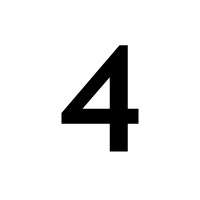- Afghanistan
- Åland Islands
- Albania
- Algeria
- American Samoa
- Andorra
- Angola
- Anguilla
- Antarctica
- Antigua and Barbuda
- Argentina
- Armenia
- Aruba
- Australia
- Austria
- Azerbaijan
- Bahamas
- Bahrain
- Bangladesh
- Barbados
- Belarus
- Belgium
- Belize
- Benin
- Bermuda
- Bhutan
- Bolivia
- Bonaire, Sint Eustatius, and Saba
- Bosnia and Herzegovina
- Botswana
- Bouvet Island
- Brazil
- British Indian Ocean Territory
- British Virgin Islands
- Brunei
- Bulgaria
- Burkina Faso
- Burundi
- Cambodia
- Cameroon
- Canada
- Cape Verde
- Cayman Islands
- Central African Republic
- Chad
- Chile
- China
- Christmas Island
- Cocos [Keeling] Islands
- Colombia
- Comoros
- Cook Islands
- Costa Rica
- Croatia
- Cuba
- Curaçao
- Cyprus
- Czech Republic
- Congo - Kinshasa
- Denmark
- Djibouti
- Dominica
- Dominican Republic
- Timor-Leste
- Ecuador
- Egypt
- El Salvador
- Equatorial Guinea
- Eritrea
- Estonia
- Ethiopia
- Falkland Islands
- Faroe Islands
- Fiji
- Finland
- France
- French Guiana
- French Polynesia
- French Southern Territories
- Gabon
- Gambia
- Georgia
- Germany
- Ghana
- Gibraltar
- Greece
- Greenland
- Grenada
- Guadeloupe
- Guam
- Guatemala
- Guernsey
- Guinea
- Guinea-Bissau
- Guyana
- Haiti
- Heard Island and McDonald Islands
- Honduras
- Hong Kong SAR China
- Hungary
- Iceland
- India
- Indonesia
- Iran
- Iraq
- Ireland
- Isle of Man
- Israel
- Italy
- Côte d’Ivoire
- Jamaica
- Japan
- Jersey
- Jordan
- Kazakhstan
- Kenya
- Kiribati
- Kosovo
- Kuwait
- Kyrgyzstan
- Laos
- Latvia
- Lebanon
- Lesotho
- Liberia
- Libya
- Liechtenstein
- Lithuania
- Luxembourg
- Macau SAR China
- Macedonia
- Madagascar
- Malawi
- Malaysia
- Maldives
- Mali
- Malta
- Marshall Islands
- Martinique
- Mauritania
- Mauritius
- Mayotte
- Mexico
- Micronesia
- Moldova
- Monaco
- Mongolia
- Montenegro
- Montserrat
- Morocco
- Mozambique
- Myanmar [Burma]
- Namibia
- Nauru
- Nepal
- Netherlands
- Netherlands Antilles
- New Caledonia
- New Zealand
- Nicaragua
- Niger
- Nigeria
- Niue
- Norfolk Island
- North Korea
- Northern Mariana Islands
- Norway
- Oman
- Pakistan
- Palau
- Palestinian Territories
- Panama
- Papua New Guinea
- Paraguay
- Peru
- Philippines
- Pitcairn Islands
- Poland
- Portugal
- Puerto Rico
- Qatar
- Congo - Brazzaville
- Réunion
- Romania
- Russia
- Rwanda
- Saint Barthélemy
- Saint Helena
- Saint Kitts and Nevis
- Saint Lucia
- Saint Martin
- Saint Pierre and Miquelon
- Saint Vincent and the Grenadines
- Samoa
- San Marino
- São Tomé and Príncipe
- Saudi Arabia
- Senegal
- Serbia
- Serbia and Montenegro
- Seychelles
- Sierra Leone
- Singapore
- Sint Maarten
- Slovakia
- Slovenia
- Solomon Islands
- Somalia
- South Africa
- South Georgia and the South Sandwich Islands
- South Korea
- South Sudan
- Spain
- Sri Lanka
- Sudan
- Suriname
- Svalbard and Jan Mayen
- Swaziland
- Sweden
- Switzerland
- Syria
- Taiwan
- Tajikistan
- Tanzania
- Thailand
- Togo
- Tokelau
- Tonga
- Trinidad and Tobago
- Tunisia
- Turkey
- Turkmenistan
- Turks and Caicos Islands
- Tuvalu
- U.S. Virgin Islands
- Uganda
- Ukraine
- United Arab Emirates
- United Kingdom
- United States
- U.S. Minor Outlying Islands
- Uruguay
- Uzbekistan
- Vanuatu
- Vatican City
- Venezuela
- Vietnam
- Wallis and Futuna
- Western Sahara
- Yemen
- Zambia
- Zimbabwe
11 Important Interview Skills and How To Improve Them

11 Important Interview Skills and How To Improve Them
Your interviewing abilities are a critical component of your capacity to successfully complete a job search. These abilities can help you persuade a potential employer that you're the best candidate for the job after you've submitted your CV and cover letter. By intentionally improving these talents, you improve your chances of landing a job now or in the future. In this essay, we will go over some of the most critical interview skills to master.
What exactly are interview skills?
Interview skills are a collection of abilities that are directly related to the interview process, including how you prepare for it. These are mostly soft skills related to successful communication and being well-prepared. They provide an opportunity for you to demonstrate your dedication and interpersonal skills to the interviewer, perhaps increasing your chances of winning the job. The greatest method to practise these abilities is to go through a number of interviews, but you may do a lot even before your first one.
11 essential interview skills
The majority of interviewing abilities are required at two stages: before and during the interview. The latter skills are mostly concerned with how you engage with the interviewer. The first skill is to be well-prepared for the interview. Here is a list of 11 things to work on to enhance your interviewing abilities:
1. Conduct research
Researching your future employer is one of the most critical components of interview preparation. This might provide you insight into their priorities, what they look for in a potential employee, and why they are hiring. This knowledge can assist you in tailoring your responses in the interview to be more relevant to the demands of that organisation. It also demonstrates your diligence and commitment to the task. Here are some things you should know about your future employer:
- The company's background
- Its industry and customer base
- What products or services it provides
- How large is the company?
- Are there any current developments?
- The organization's most prominent members
- The company's long-term expansion strategy
This type of information may be found on a company's website, social media accounts, and other promotional materials they make. You may also learn a lot about their priorities by properly reading and re-reading the job advertisement. This also provides you with much more precise information about the position, which helps you control your expectations for interview questions.
2. Practice typical interview questions.
Try to develop a list of interview questions you could be asked in the days leading up to your interview. These are divided into two categories: general interview questions that are posed in any field and more particular questions that are related to the industry or position in question. Some of the more popular generic interview questions are:
- Please tell me about yourself.
- What are your strongest and weakest points?
- Why do you want to work for this company?
- What is your motivation for seeking for a new job?
- What do you expect to get paid?
- What are your career goals?
These questions are asked by interviewers to acquire essential information about you, such as your tact, confidence, honesty, and priorities. These are standard questions in every environment, and understanding how to answer them can benefit you in future job interviews. It is more vital to know how to answer the question than to memorise a precise response. If you think it will help, practise answering these questions with a mentor, friend, or family member.
3. Practice job-specific questions
When you're familiar with broad interview questions, you may look into frequent questions for your specific profession or sector. These might be technical queries or questions about specific talents. Indeed has guidelines to various job-specific interview questions, as well as general interview advice.
4. Create your own questions.
Interviewers frequently inquire at the end of an interview if you have any questions of your own. Try to think of things that pique your interest that are relevant to the company or the job. Your research should have provided you with a wealth of information, and any gaps can serve as the foundation for your own inquiries. Make a handful of these ahead of time. Asking important questions demonstrates to the interviewer that you've given serious consideration to working for the organisation, as well as that you're generally interested and want to learn more.
5. Be prepared
In addition to your ability to answer questions, you will require the following items for an interview. To minimise a last-minute rush, try to get these things ready ahead of time. This includes your interview attire, which you may plan the night before. Plan your travel as well, taking into account traffic and other factors. If you are unfamiliar with the route, you may utilise travel planning applications to assist you plan your route and schedule. To be on the safe side, round up any time estimations.
If you need to bring any documents, be sure to have everything ready the night before. A pen and a tiny notepad can also be quite handy, even if you don't always use them. This also demonstrates to the interviewer that you are serious about being well-prepared. It's also a good idea to bring a copy or two of your resume to the interview.
6. Be on time
When you plan your trip ahead of time, strive to arrive at least five minutes early, even if you've taken into account all of your estimations. Even waiting 15 minutes or more before an interview is preferable to being late. Knowing you'll be on time for the interview reduces tension, and being comfortable at an interview boosts your confidence. Get up early so you may enjoy your breakfast or coffee at your leisure, eliminating the urge to rush.
7. Be respectful to everyone
You'll start making an impact the instant you step inside the building or workplace. In most cases, you'll meet more individuals than simply your interviewer.
Make an effort to be kind and respectful to everyone with whom you engage. Smile and be kind, as these folks all know one other and may exchange feedback. Your initial impression might have a significant influence on your overall prospects of landing the job.
8. Actively listen
Knowing what to say is an important component of interview preparation. However, it is equally crucial to listen actively and carefully during the interview. Remember that not every response you've prepared has to be utilised because it all relies on what the interviewer asks. Actively listening enables you to grasp exactly what is being asked, allowing you to more effectively answer any inquiries. Active listening is also a valuable talent to have, and the interview is an excellent time to demonstrate it. This demonstrates to the interviewer that you are a skilled and responsive communicator.
9. Be mindful of your body language
Your body language contributes significantly to the overall impression you make on the interviewer. This might express how confident or frightened you are, how open you are to people, and your overall attitude and demeanour. This is especially vital if you're seeking for a position that requires regular connection with consumers or clients. Here is a small list of things to keep in mind when it comes to your body language:
- Take a seat and stand up straight.
- Maintain consistent eye contact
- Maintain a relaxed but still posture.
- Make sure your arms and legs are not crossed.
10. Express your appreciation
After the interview, thank the interviewer for taking the time to meet with you. If you have to interact with anyone else, such as a receptionist, thank them as well before you leave. You can also convey your appreciation to the interviewer in a follow-up email. This guarantees that you make a favourable impression.
11. Evaluate your performance
When you end an interview, take some time to reflect on how you did. Determine which of your comments garnered the most favourable responses, which may be improved, and anything you may have overlooked. Determine if you received the desired reactions or whether you need to revise your strategy.
Some interviewers may give comments, which should always be carefully considered. Use this knowledge to improve your interview skills even further by recognising areas of strength and weakness.

 by Admin
by Admin


